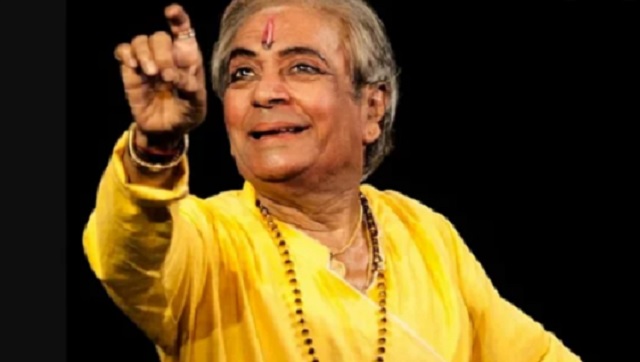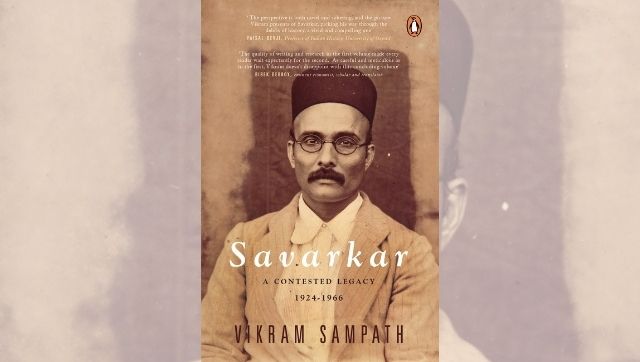Odisha-based couple Satabdi Mishra and Akshaya Rautaray had an exciting idea: to publish a book of 100 different poems by 100 different people, who belonged to diverse backgrounds. In 2017, they began executing the idea and started a social media campaign to invite 100 submissions for the book. The result was the creation of a unique poetry anthology titled 100 Poems Are Not Enough that features 79 poets from India and around the world, who have come together to talk about their stories, experiences and emotions.
The anthology showcases new and emerging trends in poetry by giving space to diverse voices on love, resistance, hope and courage. The poets featured include Abubakar Adam Ibrahim from Nigeria, Maria Pomsaharova from Slovakia, Jeon Julien from St Vincent and the Grenadines, among others. Poets from Delhi include Rajinder Arora, Gurinder Azad, Michael Creighton, Sujit Prasad, Abhishek Tripathy, Kuntala Sengupta, Ipshita Sengupta and Sumeet Samos. The poems speak about inequality, state repression, war, nature, caste, resistance, and gender, among other subjects. Each poem is distinct in its theme and style, they say.
Satabdi and Akshaya (who also have an independent bookstore) are the founders of a mobile library Walking BookFairs, that has travelled 20,000 kilometres across 20 Indian states to carry fiction and children’s literature to the country’s small towns and villages. In this conversation, the duo gives us a glimpse into the book and recount the journey of Walking BookFairs.
Tell us about the process of putting this book together.
Conceived in a bookshop, the book is dedicated to bookshops and booksellers and all the people who make books for the world to read and find joy in. Our artist friends, Biraja and Sneha, have done the gorgeous book design and cover illustration.
As an independent brick-and-mortar bookstore, we wanted to take a stand to support other independent brick-and-mortar bookstores. On its release, the book was available only at independent brick-and-mortar bookstores across India. We did not sell it on any online e-commerce site. Walking BookFairs has now co-published this book in a new edition with Pan Macmillan India. We are happy that all the brilliant poets in our book will now be available in many more bookstores and reach more people, not just in India but in other countries of the subcontinent.
What were the criteria for selecting the poems?
There was no criteria, really! We have published almost all poems that we received barring just one or two. But yes, we were looking for original work that spoke of things that affect and connect all of us living in Indian society today. We did not want to publish another bunch of romantic poems and are glad we did not receive very many of them.
Do you think the space for voices of the marginalised are still limited in mainstream publishing?
Yes. Like with everything else, publishing in India is also ruled by the upper caste-class.
Though in a bid to appear diverse, these days most publishers want to publish the one Dalit/adivasi book, this is clearly not enough. As long as people from the margins do not get to read, write and publish their own stories, nothing changes. And that, changes everything.
How did you come up with the idea of starting your mobile library, Walking BookFairs? What was the motivation behind it?
Walking BookFairs is an independent bookstore, library, bookmobile and publisher. We were disturbed by the fact that books in our country have, for the longest time, been only for the privileged few and there are no bookshops or libraries in our small towns, villages or even cities. We wanted to take books to people, so we filled our backpacks with books and walked to display books on the streets and footpaths of rural Odisha.
Our bookshop is a democratic space where all community members are equal. All visitors are welcome to browse and look around, hold books, smell books, turn and read a few pages, for free, which will never happen online. Members of our library can read hundreds of books at our library or borrow books at a very affordable registration fee. We handpick all our books, focusing mostly on literary fiction, diverse writing, poetry, children’s books and books from independent publishers.
Tell us about your journey—how it started and grew over the years.
It started in 2014 in Koraput, Odisha. We have been travelling with books for more than four years and we also have a brick-and-mortar bookshop and library in Bhubaneswar, Odisha. Our travels across India in 2015–16 with our bookmobile as a travelling bookstore and free library made headlines the world over. Since then, many people have written to us saying how inspired they have been and that they want to do something similar in their community, town or city.
How have people responded to Walking Bookfairs?
Thousands of people from diverse backgrounds across 20 states of India have read books at Walking BookFairs. People have loved the idea, found it inspiring, tried to replicate Walking BookFairs. We get hundreds of emails, messages and calls from various people across India asking us to visit them because there are no bookstores or libraries in their region.
Some people have also tried to disrupt and discredit our work through social media smear campaigns because they do not want books to reach more people. Books reaching those who have systemically been kept away from books, threatens the status quo.
What are the challenges of running a mobile library such as yours?
We run a brick-and-mortar bookstore, part of which, is also a library. We also travel from time to time, taking our bookmobile (a traveling bookstore with big discounts on all books for those who want to buy and free library for those who just wish to browse and read) to communities, schools, public spaces, universities etc.
The challenges are the same. Our education system does not encourage free independent thinking. Our notion of family, culture, society, development, progress, love, happiness, God, everything that we hold dear, is threatened by books and reading.
Tells us about some of your previous publications.
We have published four books in the last year, including the first ever Odia zines that deal with many controversial subjects—homosexuality, child sexual abuse, caste inequality, patriarchy and sovereignty of women over their bodies.
All our books are about exploring diverse experiences that one generally does not come across in mainstream publishing and sharing them with the world. One of our books, Sadharana Kabita or ‘ordinary poems’, is a collection of poems by various people. It is for the first time in Odisha that the writings of marginalised people working as daily wage labourers have been published in a book.
What next, after 100 Poems Are Not Enough?
We are in the process of publishing two new English books—one is an anthology of short stories from India by various writers and the other is an anthology of poetry from Bhubaneswar by various poets. We are still inviting submissions for these books. They can be emailed at walkingbookfairs@gmail.com
***
Here are some of the poems which have featured in 100 Poems Are Not Enough:
“Does David compare to their works Of sculpturesque ribs, gutted mountains, Bloody rivers, bloated cadavers? Do the symphonies compare to Their melodies Of shattering, crunching, booming, Wailing, plunking, popping, Pitter-pattering, Silence?”
— Abubakar Adam Ibrahim from the poem ‘Da Vinci of The Wilds’
(Abubakar Adam Ibrahim is an award-winning Nigerian writer, poet and journalist. He is the winner of the Nigerian Prize for Literature 2016 for his book Season of Crimson Blossoms and the Michael Elliot Award for Excellence in African Storytelling 2018).
“Breaking free from the machine claws I picked up a bamboo and swore, These bamboos shall go to the market no more, In the forests they will remain this time And become bows and arrows for each hand. And then for the first time The mystery revealed itself Of countless bamboos lining the hills And nurtured by ancestors with their very blood.”
— Jacinta Kerketta from the poem ‘The Mystery of the Forest Bamboos’ translated from Hindi by Bhumika Chawla-D’Souza, Vijay Chhabra and Fr. Cyprian Ekka.
(Jacinta Kerketta is an internationally acclaimed indigenous poet, writer and independent journalist from Jharkhand, India. She is one of the strongest Adivasi voices in the country today to raise her voice against the exploitation of Adivasis, state repression and the present development paradigm peddled by politicians and corporations to usurp Adivasi land)
“Crystal diamonds Glittering in corners Awaiting their turn To be swept up Crystal diamonds That cut my finger When I thought I had picked up The last gleaming Never liked diamonds Never.”
— Easterine Kire from the poem ‘Diamonds’
(Easterine Kire is an award-winning indigenous poet, novelist and writer from Nagaland, India. Her novel When the River Sleeps is the winner of the Hindu Prize 2015. Her first novel A Naga Village Remembered was also the first Naga novel to be published in English. She is also the winner of Sahitya Akademi Bal Puraskar 2018 for her book Son of the Thundercloud)
“They write in the Roman somewhere They write in the Devanagari at some places I do not know the Roman script You do not know the Devanagari script One script will unite us all The Ol-Chiki is our script.”
— A poem for the Ol-Chiki by Sokhen Tudu translated from the Santhali by award-winning Santhal writer Hansda Sowvendra Shekhar.
(Sokhen Tudu is a santhal poet and writer from Mayurbhanj, Odisha, India. This poem was originally written in the Ol-chiki script)
“Romanticising Village is one of the biggest shit, Na Jal mera, Na Jangal mera, Na Zameen mera, We are just a demarcating line in the village for you to unload your heaps of shit. Spread the news from village to universities, Your shits anywhere will not be the normal anymore”
— Sumeet Samos from the poem ‘Your shits will not be the normal’
(Sumeet Samos is an anti-caste rapper and activist from the Koraput district in Odisha and lives and studies in JNU presently. Sumeet’s anti-caste rap videos have taken India by storm)
“Keep your children indoors Not just in Kashmir But in every village Town and city
Don’t send them to school Or playground Don’t read them a book Or answer questions
Don’t let them speak Or talk to them Don’t lead them to truth For lies abound.”
— Rajinder Arora from the poem ‘Keep Your Children Indoors, For the Barbarians Are Out’, reflections on Kashmir, communal violence, hate crimes, rapes, murders, lynchings and repressive state practices.
“Sentenced to death row In a gas chamber I sit Breathing in memories Of pain and sorrow I suffocate while I cry Falling down on the ground Crawling towards the door To discover I am locked out By my inability To forgive and forget all What has been said and done”
— Maria Pomsaharova from the poem ‘Gas Chamber’
“The poem was declared As anti-national and rejected Like a US visa applicant From Muslim country”
— Ajmal Khan from the poem ‘Rejected Poem’
“Only in India could you start with a study with this Goal: ’the reluctance of the marginalized and Vulnerable communities to send their children To school’ and still be considered liberal. You might as well study their reluctance to stay Away from jail, or their refusal to apply for bail.”
— Kuffir Nalgundwar from the poem ‘Only in India’


)




)
)
)
)
)
)
)
)